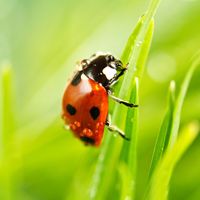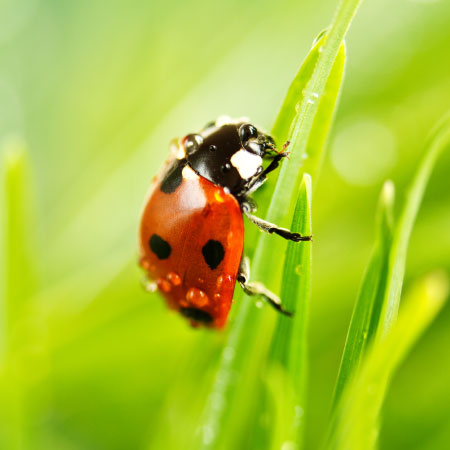What Are Blueberry Maggots: Learn About Maggots In Blueberries


Blueberry maggots are pests that often go undetected in the landscape until after blueberries are harvested. Tiny, white worms may appear in affected fruits and can spread quickly, ruining your entire year's harvest. Let's learn more about blueberry maggot control.
What are Blueberry Maggots?
Blueberry maggots are the larval stage of a 3/16 inch (5 mm.) long, black fly marked with black, horizontal bands across its wings. Maggots in blueberries are found across the eastern United States, as well as the Canadian provinces of New Brunswick, Nova Scotia, Ontario, and Prince Edward Island. Careful monitoring of your blueberry bushes for adults can aid in swift blueberry maggot identification. Adult flies appear in the summer, feeding for up to two weeks before they begin searching for mates. Over the next 30 days, females may lay as many as 100 eggs, each in an individual berry. Since eggs can hatch in as few as three days, it's vital to begin blueberry maggot control as soon as you notice the adult flies lingering on your plants.
Monitoring for Blueberry Maggot Identification
Although maggots in blueberries won't damage your plants, they will contaminate your harvest, making your fruits suspect for home use and completely unsellable at the Farmers' Market. A gardener with a good eye may notice plenty of adult flies buzzing around the blueberries, but experienced gardeners hang yellow sticky cards laced with a hydrolysate- or ammonium acetate-based protein bait around their plants. When the flies land on these cards, they stick permanently, making positive identification simple. You should always make positive blueberry maggot identification before spraying pesticides of any kind in your garden in order to protect beneficial insect species that may be hunting or foraging nearby.
Managing Blueberry Maggots
Organically-managed blueberries can be protected from an infestation of blueberry maggots by coating the berries with kaolin clay or applying spinosad-based sprays liberally to the leaves of blueberries where flowers are just starting to swell into fruit. These safer insecticides leave parasitic wasps, one of the blueberry maggot's primary enemies, untouched and able to naturally kill many blueberry pests. Spinosad and kaolin must be reapplied weekly throughout the fruiting season since they break down quickly. Imidacloprid, a systemic insecticide, can be applied to blueberries early in the season for long-term treatment in many areas. Use this pesticide with great caution, however, and only when your blueberries are overwhelmed year after year with blueberry maggots since it can poison pollinating bees. Another strategy for managing blueberry maggots in aging blueberry bushes is to replace your bushes with varieties that have shown that they can resist egg-laying attempts by blueberry maggot adults. Blueberry varieties “Bluetta,” “Earliblue,” “Herbert”, and “Northland” are excellent choices if your blueberry patch is constantly bothered by blueberry maggots. Using these more resistant varieties can reduce the work it takes to harvest useful blueberries and save you money on pest control.
Sign up for the Gardening Know How newsletter today and receive a free copy of our e-book "How to Grow Delicious Tomatoes".

Kristi Waterworth was a regular contributor to Gardening Know How for many years, answering countless queries on plant pests and diseases.